You know we often promote memoirs. I think they can make for wonderful reading — think of the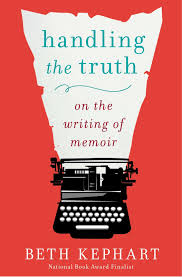 glorious writing of Mary Karr, Rhoda Janzen, Kathleen Norris or Anne Lamott. Or the wildly popular Wild. Or the take-your-breath-away writing of Kim Barnes and her amazing life stories. Or the fabulous rural life, small town stuff of Michael Perry. Think of Sarah Miles — wow, that woman can write! (And she has a new one coming in the fall!) What pleasurable hours I have had getting to know fine writers who tell us of their exploits or introspections.
glorious writing of Mary Karr, Rhoda Janzen, Kathleen Norris or Anne Lamott. Or the wildly popular Wild. Or the take-your-breath-away writing of Kim Barnes and her amazing life stories. Or the fabulous rural life, small town stuff of Michael Perry. Think of Sarah Miles — wow, that woman can write! (And she has a new one coming in the fall!) What pleasurable hours I have had getting to know fine writers who tell us of their exploits or introspections.
(Beth Kephart, by the way, is a fine, fine writer whose books we’ve stocked, and has done several very good and highly regarded ones. She has a brand new book out reflecting on the genre, Handling the Truth (Gotham Books; $16.00) speaking about the meaning of the work, and a bit about how to write memoir well, reflecting on its particular delicacies. Some have likened it to the fantastic Bird by Bird. It looks very good!)
It is an important genre, I think, and such self-aware works are especially useful for people of faith who care about the world, and especially for pastors who care for people, as memoirs are essentially auto-biography. They reveal how people narrate their own lives; how they make sense of life and times. Worldviews become ways of life, and ways of life can be healthy or less so, dysfunctional or life-giving. Either way, in the telling of the tale, insight about how people think and how people live is offered, in a style that many times can be as absorbing and artful as any novel. It is good to get to know how others think — suspending immediate judgements, and walking a mile in their shoes. Further, the best memoirs are somehow universal. You come away, as with a good novel, knowing the story, and knowing something more about yourself.
And, so, here are a few late summer stories, true ones, mostly. Some are memoir, or memoir-like. Some are more like essays that tell of episodes or journeys in a particular season of a life. They are about people; testimonials, we might say. I highly recommend them, and are happy to sell them. I hope you enjoy our comments, and hope you consider picking up one or two. Read ’em in these late days of summer, over an upcoming holiday, or give them to a book-group leader whose considering her reading lists for the fall. She will thank you later, I am sure.
J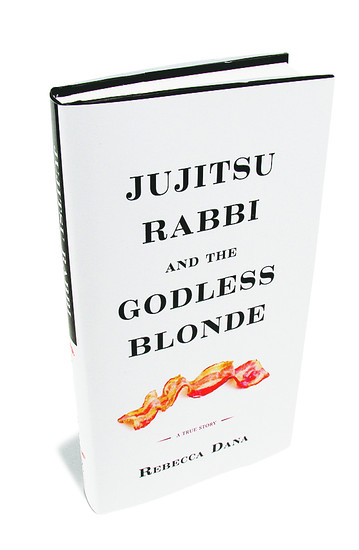 ujitsu Rabbi and the Godless Blond: A True Story Rebecca Dana (Putnam) $25.95
ujitsu Rabbi and the Godless Blond: A True Story Rebecca Dana (Putnam) $25.95
I must say this was the most enjoyable memoir of the summer for me, maybe the most enjoyable since the early spring when I read Does This Church Make Me Look Fat which both Beth and I adored — and yet I cannot commend it to everyone. The author is young, restless, urbane, and has a very sassy mouth. She is as modernly secular as can be — living like the stars of Sex in the City was her dream, which she mostly accomplished, by the way, with the glamor, and VIP big-wig connections and perks of a snazzy job uptown in NYC. (You may have read some her work in nationally-known newspapers and magazines.) And, man, is she funny.
But, yowza, her Big Apple fairy tale becomes unglued when a guy seriously, seriously breaks her heart, and she ends up — its an odd story, I know — living with a former Lubavitcher, Hasidic Rabbi from Russia, sharing an apartment in Crowns Heights. He’s questioning his faith, and takes up martial arts. She is a pop culture maven, hip and cool, but comes to be enamored by the family life and faith of these serious Jews in her new Brooklyn neighborhood, and together they give new meaning to the phrase “the odd couple.” She is smart, snarky, funny, heartbreakingly honest about her pain and disorientation, her lack of faith, her longings. Ms Dana grew up somewhat Jewish in Pittsburgh (her parents were both scientists, so she learned to believe mostly in molecules. One parent specialized in plastics, the other in rust.)
There is no happy ending here, and certainly no evangelical conversion. But she is construing her life in new ways, the yearning for faith matters to her and she tells her New York story with a bit of raunch and a lot of charm and tons of Brooklyn gusto. My, my, this is an amazing book– had me full throttle by the crazy fight scene in the first pages — it’s well written, funny and not a little bit sad. I wish them both well. You will too.
Br ead & Wine: A Love Letter to Life Around the Table With Recipes Shauna Niequist (Zondervan) $18.99 When I did that pod-casted webinar with CPYU I raved about this (in the moments allotted — I did over 50 books in an hour!) I don’t have time, sadly, to describe it well, here, either, which is ironic. One should savor this as one would a good slow meal with dear friends. Yes, this is memoiristic with episodes and reflections on thing in her life. Like her others (Cold Tangerines and Bittersweet) is it thematic, of course, so not an autobiography as such. Some of this is so tender, so frank, so beautifully rendered that I literally got choked up and had to fight back tears. Her grace of learning to appreciate God’s good gifts of food and table fellowship is just so very beautiful and, I think, so very important.
ead & Wine: A Love Letter to Life Around the Table With Recipes Shauna Niequist (Zondervan) $18.99 When I did that pod-casted webinar with CPYU I raved about this (in the moments allotted — I did over 50 books in an hour!) I don’t have time, sadly, to describe it well, here, either, which is ironic. One should savor this as one would a good slow meal with dear friends. Yes, this is memoiristic with episodes and reflections on thing in her life. Like her others (Cold Tangerines and Bittersweet) is it thematic, of course, so not an autobiography as such. Some of this is so tender, so frank, so beautifully rendered that I literally got choked up and had to fight back tears. Her grace of learning to appreciate God’s good gifts of food and table fellowship is just so very beautiful and, I think, so very important.
As one reviewer of this handsome hardback, Bread & Wine is “a poetic reminder to appreciate the rituals, people, and sensory experiences of our everyday life.”
This is, I am convinced, exactly the sort of book that many of our favorite customers will love. It is very thoughtful, exceptionally well-written, deeply Christian, quite enjoyable, even practical — you want more? There are recipes! One of the best books of 2013, for sure! I bet if you read it, you’ll think of people to give it to — it’s that kind of a special book.
Here is what Shauna Niequist herself says of what she hopes you’ll get out of it:
My prayer is that you’ll read these pages first curled up on your couch on in bed or in the bathtub , and then after than you’ll bring it to the kitchen with you, turning corners of pages, breaking the spine, spilling red wine on it and splashing vinegar across the pages, that it will become battered and stained as you cook and chop and play music loud and kitchen messy.
And more than anything, I hope that when you put this book down, you’ll gather the people you love around your table to eat and drink, to tell stories, to be heard and fed and nourished on every level.
R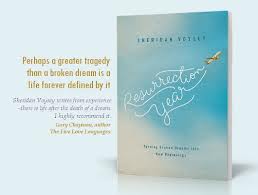 esurrection Year: Turning Broken Dreams into New Beginnings Sheridan Voysey (Nelson) $15.99 The subtitle of this is audacious, and although many books (especially those from evangelical publishers) over-promise and make grandiose claims of what the book will do for you, this is, in fact, a story of just this sort of journey.
esurrection Year: Turning Broken Dreams into New Beginnings Sheridan Voysey (Nelson) $15.99 The subtitle of this is audacious, and although many books (especially those from evangelical publishers) over-promise and make grandiose claims of what the book will do for you, this is, in fact, a story of just this sort of journey.
The author and his wife had spent tens years of tear-soaked prayers, repeatedly dashed hopes, and multiple failed rounds of IVF, and finally came to the heartbreaking conclusion that their dream of having their own child was over. Unlike most folks, there were able, then, to head out on a year-long journey of restoration, traveling to Rome, Paris, the Swiss Alps (yep, they end up at L’Abri), and ending up at their new home in Oxford. I like that the back cover says it is “one part spiritual memoir, one part love story.” It is also a great travelogue.
And, it is, finally, a rumination about those broken dreams, something not a few of us know something about (right?) As it says in large type on the back cover, “Perhaps a greater tragedy than a broken dream is a life forever defined by it.” This is a beautifully written story, moving and powerful and interesting as they discover the “healing qualities of beauty, play, friendship, and love.”
S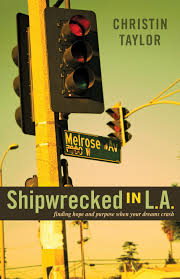 hipwrecked in L.A.– Finding Hope and Purpose When Your Dreams Crash Christian Taylor (Wesleyan Publishing House) $14.99 There are a good number of great reasons why we are exciting to tell people about this, but let me mention just three. Firstly, it is memoir of a young woman learning to embrace the idea of serving God by taking up a holy calling in a career, rooting it in the doctrine of vocation. This “serve God in the work-world and make a difference in influential culture-shaping venues and spheres is popular in some of our best Christian colleges and parachurch ministries (like our beloved Jubilee conference) and any time a person tells of how this works for them, this growing sense of an integrated life, learning to care, to live faithfully in their careers and callings, it is always worth reading.
hipwrecked in L.A.– Finding Hope and Purpose When Your Dreams Crash Christian Taylor (Wesleyan Publishing House) $14.99 There are a good number of great reasons why we are exciting to tell people about this, but let me mention just three. Firstly, it is memoir of a young woman learning to embrace the idea of serving God by taking up a holy calling in a career, rooting it in the doctrine of vocation. This “serve God in the work-world and make a difference in influential culture-shaping venues and spheres is popular in some of our best Christian colleges and parachurch ministries (like our beloved Jubilee conference) and any time a person tells of how this works for them, this growing sense of an integrated life, learning to care, to live faithfully in their careers and callings, it is always worth reading.
Secondly, her chosen career was to serve God in Hollywood. So there’s that: who isn’t interested in the small-town girl heading off to the bright lights of the big city and finding her place among the stars? Her college internship in Burbank and her later job in Beverly Hills is truly interesting, and it is fascinating to hear how she navigates working in the film industry as a missionary of sorts.
And, thirdly? Well, it doesn’t work out so well for her, there are significant “shipwrecks.” I think that learning about the complexities and struggles and ambiguities of the discernment of vocation can be immensely sobering for idealistic young adults heading out to make their mark on the world, with and for the Lord. The subtitle here is the heart of the book — what does one do when one’s Big Dreams come crashing down? How does it effect your sense of self and your future hope of finding purpose when one’s initial passions and significant opportunities erode? This is vital, helpful stuff, in the guise of a wonderful, clear, memoir.
A final two quick reasons to buy this book: Ms Taylor now works at Gettysburg College, a fine church-related college where my wife, Beth, is an alum. So, yay for G-burg. And, not insignificantly, it is well written. The author teaches writing, now, and has clearly found a reliable calling. This is a good first book, and it is quite a story. Enjoy and learn!
D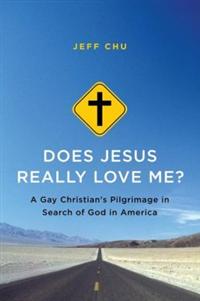 oes Jesus Really Love Me? A Gay Christian’s Pilgrimage in Search of God in America Jeff Chu (HarperOne) $26.99 I read some of this twice, so taken was I by the author’s candid approach, his honest travels to various sorts of folks who do or don’t accept his same-sex orientation and his questioning, Christian convictions. Of course, this ends up being a not too subtle call for greater sensitivity to the issues faced by gay and lesbian brothers and sisters. But It isn’t a rant. You may or may not agree with his views, but that isn’t the point, here. It is a report from an honest reporter, giving us windows of insight into all sorts of folks and all kinds of beliefs about the ethics of sexuality. Mr. Chu is a journalist by trade, a good storyteller, and this reads like any other first-person travelogue. I think it is valuable firstly as a great read — you will care about the characters, feel like you are on the road with him, sitting there as he listens to all manner of folks across these United States. The backstories, and side-trips, the emails and family drama are well crafted and pull you in to the narrative.
oes Jesus Really Love Me? A Gay Christian’s Pilgrimage in Search of God in America Jeff Chu (HarperOne) $26.99 I read some of this twice, so taken was I by the author’s candid approach, his honest travels to various sorts of folks who do or don’t accept his same-sex orientation and his questioning, Christian convictions. Of course, this ends up being a not too subtle call for greater sensitivity to the issues faced by gay and lesbian brothers and sisters. But It isn’t a rant. You may or may not agree with his views, but that isn’t the point, here. It is a report from an honest reporter, giving us windows of insight into all sorts of folks and all kinds of beliefs about the ethics of sexuality. Mr. Chu is a journalist by trade, a good storyteller, and this reads like any other first-person travelogue. I think it is valuable firstly as a great read — you will care about the characters, feel like you are on the road with him, sitting there as he listens to all manner of folks across these United States. The backstories, and side-trips, the emails and family drama are well crafted and pull you in to the narrative.
Further — as I said in the beginning — I think memoirs serve to help us understand how people see themselves, make meaning of their lives, construe their worldviews and make sense of the world and their relationships. Again, agree or not, reading Does Jesus Really Love Me? is a very valuable exercise, allowing you to “walk a mile” in somebody else’s shoes. These are shoes that have seen some strange streets, and you will be wiser to have walked along with him.
G race in the Maybe: Instructions On Not Knowing Everything About God Katie Savage (Howard) $15.99 When this first came out (under the curious title Whirlybirds and Ordinary Times) I raved about it, but it didn’t quite catch on. Now it is out in paperback with a new title and I’m still hoping it will catch on. Savage is a good young writer — some of this shines and glimmers, capturing the texture of her day, in beautiful prose. Mostly, it is a formerly strict evangelical learning to embrace a more faithful and humane uncertainty, and attentiveness to the glories of the everyday. Some of these pieces are almost essays, and in them, she tells of her own journey, but often with a light touch. They are a delight to read. They are about “the maybe” times, and, well, finding grace. What a topic — honest and real! Oh yes, they are arranged nicely around the themes of the liturgical calendar, the keeping of which being a Christian practice previously unknown by her. Pretty frisky, pretty insightful, a pleasant meander through the church year. Good insight and great writing. I like the new paperback cover, too — hooray!
race in the Maybe: Instructions On Not Knowing Everything About God Katie Savage (Howard) $15.99 When this first came out (under the curious title Whirlybirds and Ordinary Times) I raved about it, but it didn’t quite catch on. Now it is out in paperback with a new title and I’m still hoping it will catch on. Savage is a good young writer — some of this shines and glimmers, capturing the texture of her day, in beautiful prose. Mostly, it is a formerly strict evangelical learning to embrace a more faithful and humane uncertainty, and attentiveness to the glories of the everyday. Some of these pieces are almost essays, and in them, she tells of her own journey, but often with a light touch. They are a delight to read. They are about “the maybe” times, and, well, finding grace. What a topic — honest and real! Oh yes, they are arranged nicely around the themes of the liturgical calendar, the keeping of which being a Christian practice previously unknown by her. Pretty frisky, pretty insightful, a pleasant meander through the church year. Good insight and great writing. I like the new paperback cover, too — hooray!
O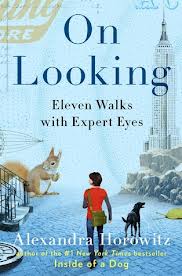 n Looking: Eleven Walks with Expert Eyes Alexandra Horowitz (Scribner) $27.00 Okay, this isn’t memoir, really. It is a very creative sort of serious non-fiction, written by the same popular, smart author who gave us the exceptional, intelligent, fascinating look at life from a dogs-eye view, Inside a Dog. Loved that one? Or maybe you had heard about it, was intrigued, but didn’t want to read a whole book, just on that. This will be perfect for you — it’s the same sort of approach, written large. You get to see all sorts of things, from new perspectives, new angles. Wait till you see what other insights this amazing woman brings to us as she guides us on eleven different walks, and teaches us how to see. Susan Orlean explains the author’s great gift like this: “Horowitz writes like a poet, thinks like a scientist, and ventures like an explorer. Her book will have you looking in a new way at the world around you, and make you glad you did.”
n Looking: Eleven Walks with Expert Eyes Alexandra Horowitz (Scribner) $27.00 Okay, this isn’t memoir, really. It is a very creative sort of serious non-fiction, written by the same popular, smart author who gave us the exceptional, intelligent, fascinating look at life from a dogs-eye view, Inside a Dog. Loved that one? Or maybe you had heard about it, was intrigued, but didn’t want to read a whole book, just on that. This will be perfect for you — it’s the same sort of approach, written large. You get to see all sorts of things, from new perspectives, new angles. Wait till you see what other insights this amazing woman brings to us as she guides us on eleven different walks, and teaches us how to see. Susan Orlean explains the author’s great gift like this: “Horowitz writes like a poet, thinks like a scientist, and ventures like an explorer. Her book will have you looking in a new way at the world around you, and make you glad you did.”
Yes, it is fair to say that Horowitz’s On Looking teaches us to pay attention — one reviewer said it helps us get “the scent behind the smell” — by describing these almost dozen small adventures. Jonathan Weiner says “On Looking teaches us that the world is just as rich, strange, and charmed when seen through the eyes of our local artists, doctors, architects, and toddlers.” Mostly set in her neighborhood in Manhattan, it could be anywhere, if you have “the eyes to see.” Great.
The Strange Death of Captain John Buckman and Other Obscure Stories Harry L. Borger (Sheridan Press) $14.99 Well, I’m not sure what to say about this since the author is my own very beloved older brother. I guess I’m biased, but I am sure some BookNotes fans will get a real kick out of this. This is as indie as it gets.
H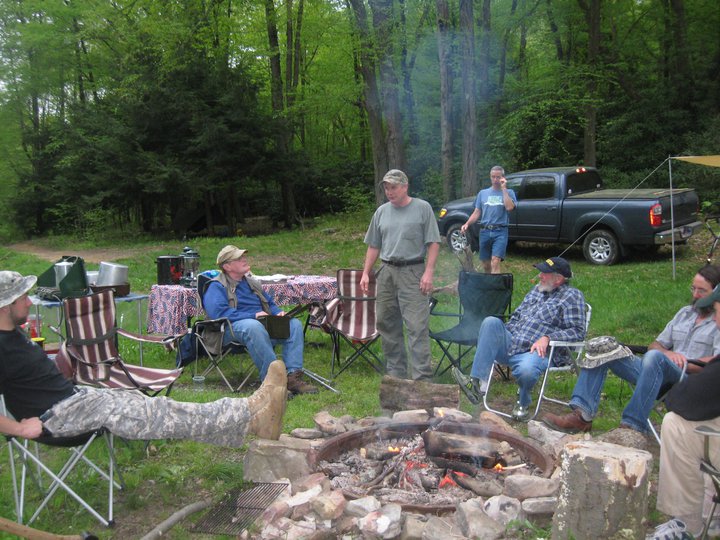 arry L. was big in Boy Scouts in the 60s, and from an early age learned about telling camp fire stories. Later, he learned to be a guide at the National Park in Gettysburg, worked in the ghost walking scene for a bit, and he’s matured into not just a fire-side story teller, but a vibrant oral historian, a keeper of many secrets, a guy who knows a bit about everything and loves for you to know the details.
arry L. was big in Boy Scouts in the 60s, and from an early age learned about telling camp fire stories. Later, he learned to be a guide at the National Park in Gettysburg, worked in the ghost walking scene for a bit, and he’s matured into not just a fire-side story teller, but a vibrant oral historian, a keeper of many secrets, a guy who knows a bit about everything and loves for you to know the details.
This is his self-published manuscript, and it includes some family stories, some stuff from his own life, and a whole lot of odd-ball history from central Pennsylvania (and beyond. Way beyond, like a piece on Norway, which you really should read, and a bit on the central PA town of Karthaus, whose founder may have been working for the King of France and had some connections to silver belonging to Blackbeard at the Baltimore harbor, and some other clear connections with a ex-baron from Poland who was building the first interstate highway through Pennsylvania in the early 1800s.)
So, I admit, it isn’t exactly a memoir. But I’m putting it here, well, because it really does say much about his own life, his passions, and his hopes that people recall the past, their localities, the stories of their places, even if some of those stories are yarns. If I were doing a history list, I’d put it there, too. It is a book that defies easy categorization.
Do you know about the drawing of Lincoln’s feet? Did you know there is a mini-nuclear reactor in the woods outside of State College, PA? Did you know that early aviators made their way by looking at giant concrete arrows (almost the size of small roadways) and you can still find some of these slabs out in the wilderness, pointing this way or that?
I suppose it may not thrill you, but did you know that the famous artist M.C. Escher did a print in 1919 call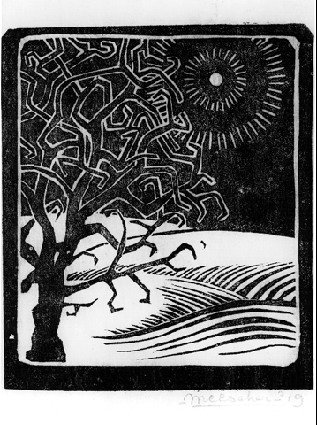 ed “The Borger Oak”? Did you know about the murder of young Clara Price and the memorial about her along the Susquehanna River? Do you know about the collier industry in many 19th century woodlands? Harry used to be an attentive adventurer and canoe paddler, so he knows these things. He’s hiked here and there, snooped around, talked to the old-timers, and scavenged small-town historical societies and libraries. He’s unraveled a few murder mysteries in this book, and regales us with some funny tales, too. I suspect he made a few up on his many canoe trips on the West Branch.
ed “The Borger Oak”? Did you know about the murder of young Clara Price and the memorial about her along the Susquehanna River? Do you know about the collier industry in many 19th century woodlands? Harry used to be an attentive adventurer and canoe paddler, so he knows these things. He’s hiked here and there, snooped around, talked to the old-timers, and scavenged small-town historical societies and libraries. He’s unraveled a few murder mysteries in this book, and regales us with some funny tales, too. I suspect he made a few up on his many canoe trips on the West Branch.
Harry knows about the Pine Grove Furnace Prisoner of War Camp (and the restoration project there.) He knows about the largest shipwrecked fleet in the Western Hemisphere, and a local connection. You can learn this stuff, too — like what he shares in an essay about the town of Pandemonium, PA. Or how lumbering was done in the mid-Atlantic woods in the early 1900s. Harry is an outdoorsman, so there is some nice nature writing here. He’s into geo-caching, so there are unique stories about places and placements that are educational and inspiring. He’s got some old photos included, of historical buildings, of old equipment (steam engine era, for instance) and of maps and old newspaper stories. My, my, it is hard to explain. There’s a bit about our family, and our late, great father, Harry D. Borger. A few of his friends have contributed a couple of pieces, and he’s highlighted a few news excerpts of pertinent pieces, or stuff he happened to find amusing. I have to admit I’m not sure if this will win any Pulitzer Prizes, but we all know that oral history and local storytelling is of great, great value. Especially when it is written by somebody with as much curiosity and flair as my big bro. I was thinking of sending one to Wendell Berry, actually. I think some Hearts & Minds readers will appreciate it. I can even get it autographed, if you’d like. Let us know.
M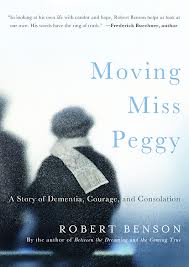 oving Miss Peggy Robert Benson (Abingdon) $15.99 I have often said how much I love this gentle, clear, economical author. I’d follow him anywhere — and have — as he has written a number of great books, one by one offering ruminations on baseball and backyard gardening and vacations and vocations life, all including portions of his own story. He is known for his guidebooks on prayer and Benedictine views of community and neighborliness. Here, he turns his attention to something so very, very tender (and, not incidentally, something very, very close to my own experiences these days.) This is about his beloved mother’s growing dementia. And, of course, moving her to a better living situation.
oving Miss Peggy Robert Benson (Abingdon) $15.99 I have often said how much I love this gentle, clear, economical author. I’d follow him anywhere — and have — as he has written a number of great books, one by one offering ruminations on baseball and backyard gardening and vacations and vocations life, all including portions of his own story. He is known for his guidebooks on prayer and Benedictine views of community and neighborliness. Here, he turns his attention to something so very, very tender (and, not incidentally, something very, very close to my own experiences these days.) This is about his beloved mother’s growing dementia. And, of course, moving her to a better living situation.
This is doubtlessly one of the best books I’ve read this year, and if you, or anyone you know, is facing this common situation of dealing with an increasingly frail or forgetful loved on, this is a will be a true companion for you. He talks about his colorful mother, and his colorful extended family who all pitched in to figure out the finances and future of Miss Peggy. He gives some advice along the way, but never at the expense of the unfolding narrative. As all of his inspiring books, the lessons are mostly between the lines, coming quietly, connected to the quiet story as he so candidly tells it.
Again, if you know anyone with aging parents, this book will be a godsend. Even if you don’t now relate to this topic, it is a gem of a memoir, a wonderful telling of a touching tale, and I’d still heartily recommend it for book lovers of any sort. Read Robert Benson. Read Moving Miss Peggy. Before you are even part way through you will care more about your family, the plot-line of your life and the plot-lines of your loved ones lives, and you will be grateful for the presence of God through it all. Reading this is lovely experience (even though a few times it hit so close to home had to wipe tears from my eyes, reminding me of Dorothy Day’s famous line about love being a harsh and dreadful thing.) Read this book and you will be better for it, I promise.
I wish the publisher could have provided a clearer jpg of the cover that could be imported for you to see — you’d better notice not only the very moving photograph, but a lovely, rare blurb by the esteemed theologian, Frederick Buechner.
M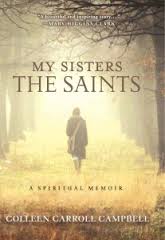 y Sisters The Saints: A Spiritual Memoir Colleen Carroll Campbell (Image) $22.99 If you care about college students, young adults, and especially young women and their faith development, you will be hooked on this beautifully written memoir within the first few paragraphs. It starts almost brutally, the attractive and worldly-wise young collegiate in the aftermath of a brazenly drunken party the night before, wondering how her life had brought here there, and what in the world it all meant. Well written with the sad ring of truth — it could have been a scene from novels like Tom Wolfe’s I Am Charlotte Simmons or Jeffrey Eugenides’ The Marriage Plot — the author decides to make some other choices in her life.
y Sisters The Saints: A Spiritual Memoir Colleen Carroll Campbell (Image) $22.99 If you care about college students, young adults, and especially young women and their faith development, you will be hooked on this beautifully written memoir within the first few paragraphs. It starts almost brutally, the attractive and worldly-wise young collegiate in the aftermath of a brazenly drunken party the night before, wondering how her life had brought here there, and what in the world it all meant. Well written with the sad ring of truth — it could have been a scene from novels like Tom Wolfe’s I Am Charlotte Simmons or Jeffrey Eugenides’ The Marriage Plot — the author decides to make some other choices in her life.
She writes,
“Returning my gaze to the bleak scene beneath the window, I realized how much things had changed — how much I had changed — since I first arrived at my freshman dorm that muggy August move-in day. I had lost something. I didn’t know what it was or how to get it back. I only knew that this aching emptiness in the pit of my stomach had grown unbearable.”
The heart of the book tells of her own journey around the world, to some amazing places and some notable jobs (including a stint as a speech writer in the White House), driven by her angst and ambivalence about the sexual chaos and gender expectations of her generation’s culture, to discover and embrace the Catholic vision of five women saints. She writes,
Dissatisfied by the pat answers offered both by secular feminists and their antifeminist critics, I found grace and inspiration from an unexpected source: spiritual friendships with six women saints. In the lives and writings of Teresa of Avila, Therese of Lisieux, Faustina of Poland, Edith Stein of Germany, Mother Teresa of Calcutta, and Mary of Nazareth, I discovered kindred spirits. These women spoke to my deepest longings, guided me through my most wrenching decisions, and transformed my understanding of love and liberation.
About Campbell’s work writing about these women, art historian Elizabeth Lev says Campbell has “liberated these great historical heroines from dusty altarpieces and stone effigies and has brought them into the new millennium.”
The memoir itself, which tells the broader story of her travels, her quest for faith, trying times with an ill father, her own marriage and new motherhood, it is deeply meaningful, but also a lot of fun.
Here she tells of, well, you’ll see:
I had not been expecting to work with him that day. I knew that Bush was an early riser, but no one had told me that he expected his speechwriters to arrive before sunrise on the morning after they had turned in remarks for his review. I felt faint when I strolled into my office at 8 A.M. and found “POTUS” listed on my caller ID. I had missed the President’s call — twice — and he still was waiting to see me so we could discuss the speech I had written for him on education reform.
I arrived in the Oval Office minutes later, breathless and sporting my cheapest blazer, a lumpy, pea-green number I had picked up at T.J.Maxx for $13. My drab brown slacks drooped at the waist, and my still-damp hair hung limply around my puffy eyes. I had spent most of the night before lying awake, wondering if this move had been a mistake. Now sleep-deprived and still panting from my sprint through the West Wing, I tried to remind myself that it’s an honor to work for a president even if he fires you the second week.
It is a fine and enjoyable read for anyone; Agnes Conovan says “You won’t put this book down until you have finished the last page. And, as you read, you will hold your breath in hopefulness.” But it is quite particularly Roman Catholic. Charles Chaput OFM (the Capuchin Archbishop of Philadelphia) writes that “Colleen Carrroll Campbell is one of the finest writers on the American Catholic scene, and My Sister the Saints shows her heart, her skill, and her keen intelligence at their best. This is a wonderful, engaging, personal memoir and a great witness of faith.” Cardinal Timothy Dolan of New York says “Completely contemporary and totally timeless, this engaging spiritual memoir is the perfect guidebook for anyone who is looking for a companion to help her navigate life’s sometimes difficult and confusing journey.”
BookNotes
SPECIALDISCOUNTANY ITEM MENTIONED
20% off
order heretakes you to the secure Hearts & Minds order form pagejust tell us what you want
inquire here
if you have questions or need more information
just ask us what you want to know
Hearts & Minds 234 East Main Street Dallastown, PA 17313 717-246-3333
read@heartsandmindsbooks.com
 appeal for you to read books about work. I think it was a good column, and I’ll give you the link to it below, in a moment.
appeal for you to read books about work. I think it was a good column, and I’ll give you the link to it below, in a moment.  anniversary
anniversary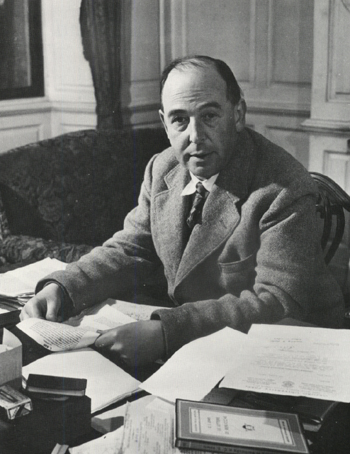 y the best sermons, by the best preachers, applying the gospel to life — is for those who go to work in ordinary jobs, not church work. And it is their duty to think it through. As C.S. Lewis famously put it, “The application of Christian principles, say, to trade unionism and
y the best sermons, by the best preachers, applying the gospel to life — is for those who go to work in ordinary jobs, not church work. And it is their duty to think it through. As C.S. Lewis famously put it, “The application of Christian principles, say, to trade unionism and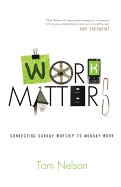
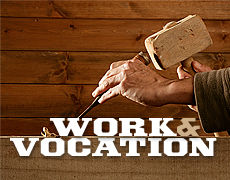 and vocation, and work and jobs and it is for both ordinary folks and pastors. I am glad that this list has
and vocation, and work and jobs and it is for both ordinary folks and pastors. I am glad that this list has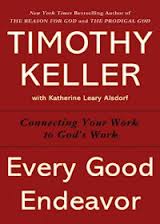 very good book on this topic Every Good Endeavor: Connecting Your Work to God’s Work telling of our role in the book launch of it in New York, last November. It was written by Keller with an associate of his who has spent much time in the corporate world, Katherine Leary Alsdorf, who has thought about this as much as anybody I know, so it is excellent. (EGE was published by Dutton in hardback, regularly selling for $26.95. Our sale price for that one is $19.95.)
very good book on this topic Every Good Endeavor: Connecting Your Work to God’s Work telling of our role in the book launch of it in New York, last November. It was written by Keller with an associate of his who has spent much time in the corporate world, Katherine Leary Alsdorf, who has thought about this as much as anybody I know, so it is excellent. (EGE was published by Dutton in hardback, regularly selling for $26.95. Our sale price for that one is $19.95.) 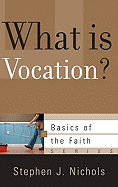

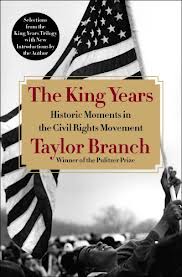 renew the valiant work of the civil rights movement of the 1950s and ’60s. Those books that I listed about Dr. King, the March on Washington, and the civil rights struggles that went on before and immediately after that March, will inform you, move you, make you weep, and perhaps give you some glad joy that Christ’s own church stood with others of other faiths and no faith, to speak about justice, social transformation, racial reconciliation and economic justice.
renew the valiant work of the civil rights movement of the 1950s and ’60s. Those books that I listed about Dr. King, the March on Washington, and the civil rights struggles that went on before and immediately after that March, will inform you, move you, make you weep, and perhaps give you some glad joy that Christ’s own church stood with others of other faiths and no faith, to speak about justice, social transformation, racial reconciliation and economic justice. 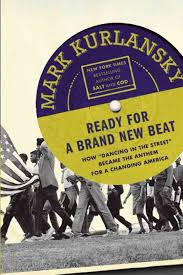 eady for a Brand New Beat: How “Dancing in the Street” Became the Anthem for a Changing America Mark Kurlansky (Riverhead) $27.95 This was one of my most eagerly awaiting books that I was going to enjoy this summer, and was thrilled when it released a few weeks ago. Haven’t read it yet (sigh) but here is what the astute and respected historian David McCullough says of Kurlanks (who wrote the exceptionally interesting books Salt and Cod.) “Every once in a while a writer of a particular skill takes a fresh, seemingly improbably ideas and turns out a book of pure delight.”
eady for a Brand New Beat: How “Dancing in the Street” Became the Anthem for a Changing America Mark Kurlansky (Riverhead) $27.95 This was one of my most eagerly awaiting books that I was going to enjoy this summer, and was thrilled when it released a few weeks ago. Haven’t read it yet (sigh) but here is what the astute and respected historian David McCullough says of Kurlanks (who wrote the exceptionally interesting books Salt and Cod.) “Every once in a while a writer of a particular skill takes a fresh, seemingly improbably ideas and turns out a book of pure delight.” 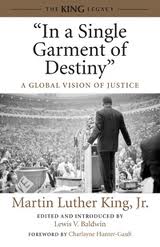 n a Single Garment of Destiny” A Global Vision of Justice Martin Luther King, Jr edited and introduced by Lewis V. Baldwin (Beacon Press) $26.95 I mentioned in yesterdays post that Beacon Press has been issuing some of MLK’s books in what they call “The King Legacy.” They have one compiling his speeches and writings on work and worker’s rights, but this one is surely unprecedented. Here, Baldwin compiled all of King’s various speeches and sermons and writings on what we now know as the globalized economy. For years, I used to use a famous King speech noting the various lands and countries and farmers and workers who ship our various foods to us, noting that we have touched folk all over the world with our morning breakfast. Indeed, there is something good – and very troubling when it turns unjust — about the inter-connections in God’s world. (It was King’s namesake, Martin Luther, who brought a theological description of that — the masks and persona’s we reveal, as God’s hand and feet in the world as we connect with and serve our neighbors.) So, yes, indeed, we are in “a single garment” together, and our destinies are clearly inter-twined.
n a Single Garment of Destiny” A Global Vision of Justice Martin Luther King, Jr edited and introduced by Lewis V. Baldwin (Beacon Press) $26.95 I mentioned in yesterdays post that Beacon Press has been issuing some of MLK’s books in what they call “The King Legacy.” They have one compiling his speeches and writings on work and worker’s rights, but this one is surely unprecedented. Here, Baldwin compiled all of King’s various speeches and sermons and writings on what we now know as the globalized economy. For years, I used to use a famous King speech noting the various lands and countries and farmers and workers who ship our various foods to us, noting that we have touched folk all over the world with our morning breakfast. Indeed, there is something good – and very troubling when it turns unjust — about the inter-connections in God’s world. (It was King’s namesake, Martin Luther, who brought a theological description of that — the masks and persona’s we reveal, as God’s hand and feet in the world as we connect with and serve our neighbors.) So, yes, indeed, we are in “a single garment” together, and our destinies are clearly inter-twined. 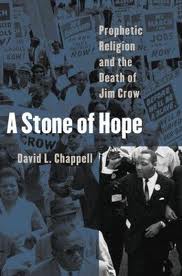 Stone of Hope: Prophetic Religion and the Death of Jim Crow
Stone of Hope: Prophetic Religion and the Death of Jim Crow ight: A Christian Case for Nonviolence Preston Sprinkle (David C. Cook) $14.99 Of course, most know that King encouraged those involved in sits ins and pray ins and civil disobedience to be fully committed to faith-based nonviolence. Stride Toward Freedom, the riveting tale of the Montgomery bus boycott is one of the texts that both explain this, and tells how they prepared people to “turn the other cheek” even when physically assaulted. I myself used portions of the Montgomery pledges in training folks for nonviolence direct action against dangerous nuclear power plants in the 70s, and found others, in jail and out, who were equally inspired by King’s impressive journey to the power of Christ to disrupt injustice by embodying love for enemy. Of course his liberal mainline Protestant’s almost talked him out of that (thank God for Ghandi and his influence on King, who returned his vision to Jesus!) It is baffling to me how so many people can say they admire King, but disagree with the heart of his vision: Christian love lived out in a social gospel that was committed to the power of grace and mercy shown to all. The verse from the Apostle John’s “we love because He first loved us” was important to King, as was the cosmic call to be agents of reconciliation (2 Corinthians 5: 16ff.) Yes, he took Jesus literally on this whole business of praying for those who persecute us.
ight: A Christian Case for Nonviolence Preston Sprinkle (David C. Cook) $14.99 Of course, most know that King encouraged those involved in sits ins and pray ins and civil disobedience to be fully committed to faith-based nonviolence. Stride Toward Freedom, the riveting tale of the Montgomery bus boycott is one of the texts that both explain this, and tells how they prepared people to “turn the other cheek” even when physically assaulted. I myself used portions of the Montgomery pledges in training folks for nonviolence direct action against dangerous nuclear power plants in the 70s, and found others, in jail and out, who were equally inspired by King’s impressive journey to the power of Christ to disrupt injustice by embodying love for enemy. Of course his liberal mainline Protestant’s almost talked him out of that (thank God for Ghandi and his influence on King, who returned his vision to Jesus!) It is baffling to me how so many people can say they admire King, but disagree with the heart of his vision: Christian love lived out in a social gospel that was committed to the power of grace and mercy shown to all. The verse from the Apostle John’s “we love because He first loved us” was important to King, as was the cosmic call to be agents of reconciliation (2 Corinthians 5: 16ff.) Yes, he took Jesus literally on this whole business of praying for those who persecute us.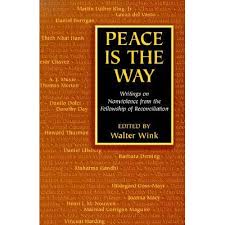 my favorite collections, for those wanting to dip in to this grand tradition, include Peace Is The Way: Writings on Nonviolence from the Fellowship of Reconcilation edited by Walter Wink (Orbis; $25.00) Martin Luther King, Jr. was a part of FOR — which, by the way, was founded by two Christians in the devastating wake of WWII, but now is broadly interfaith in its orientation. In this almost 300 page anthology, you’ll be able to read famous pieces from their historic magazine, authored by King, Howard Thurman, Barbara Deming, Mahatma Gandhi, A.J. Muste, Vincent Harding, Cesar Chevez, Dorothy Day, Henri Nouwen, Jim Forest, Jim and Shelley Douglas, John Dear, and so many others. These are the sorts of writers and activists that influenced King, in many cases, and, agree with all if it or not, it is a volume worth having.
my favorite collections, for those wanting to dip in to this grand tradition, include Peace Is The Way: Writings on Nonviolence from the Fellowship of Reconcilation edited by Walter Wink (Orbis; $25.00) Martin Luther King, Jr. was a part of FOR — which, by the way, was founded by two Christians in the devastating wake of WWII, but now is broadly interfaith in its orientation. In this almost 300 page anthology, you’ll be able to read famous pieces from their historic magazine, authored by King, Howard Thurman, Barbara Deming, Mahatma Gandhi, A.J. Muste, Vincent Harding, Cesar Chevez, Dorothy Day, Henri Nouwen, Jim Forest, Jim and Shelley Douglas, John Dear, and so many others. These are the sorts of writers and activists that influenced King, in many cases, and, agree with all if it or not, it is a volume worth having.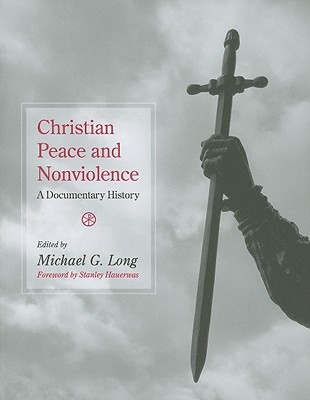 (Orbis; $40.00.) This volume is so comprehensive, I’ll just quote the nice overview written by Orthodox theologian, Jim Forest, who describes it helpfully like this:
(Orbis; $40.00.) This volume is so comprehensive, I’ll just quote the nice overview written by Orthodox theologian, Jim Forest, who describes it helpfully like this: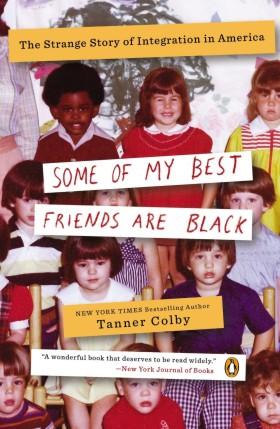 ome of My Best Friends Are Black: The Strange Story of Integration in America Tanner Colby (Penguin) $16.00 This is not about the Jim Crow years, the civil rights struggle or the brave movement of those who followed King’s activism. Rather, it is what race relations were like in more recent years — with institutionalized racism prevalent and de facto segregation common in many place, but all the kids learning about the “I Have a Dream” speech in school. We a just love the diversity vision, but how many are actually experiencing it? It promised in the promo literature to be written with “boundless curiousity and a biting sense of humor.” Since the author had written books on both John Belusi and Chris Farley, I expected it to be interesting and a bit funny. It wasn’t really funny, but, still — what a book!
ome of My Best Friends Are Black: The Strange Story of Integration in America Tanner Colby (Penguin) $16.00 This is not about the Jim Crow years, the civil rights struggle or the brave movement of those who followed King’s activism. Rather, it is what race relations were like in more recent years — with institutionalized racism prevalent and de facto segregation common in many place, but all the kids learning about the “I Have a Dream” speech in school. We a just love the diversity vision, but how many are actually experiencing it? It promised in the promo literature to be written with “boundless curiousity and a biting sense of humor.” Since the author had written books on both John Belusi and Chris Farley, I expected it to be interesting and a bit funny. It wasn’t really funny, but, still — what a book!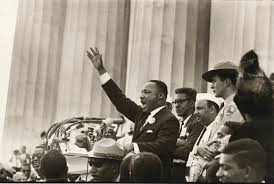
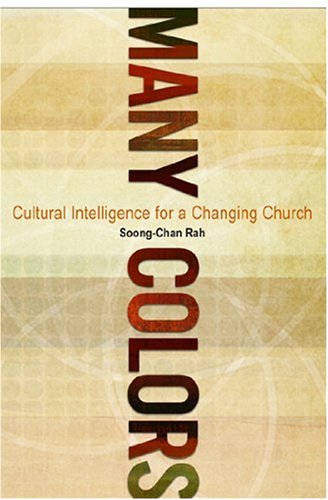
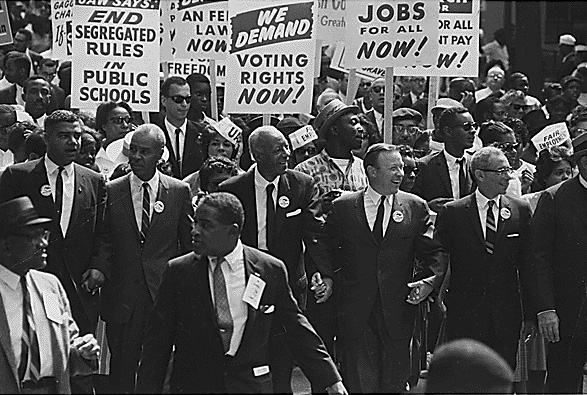
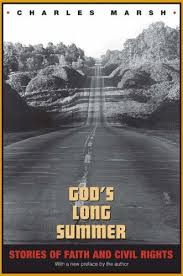
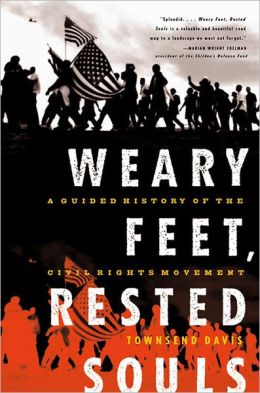
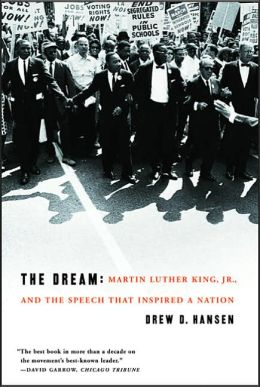
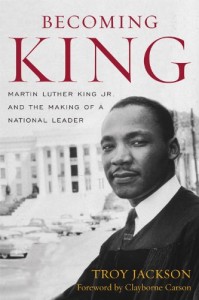
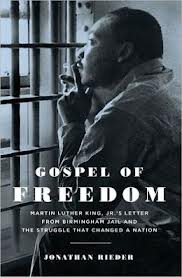
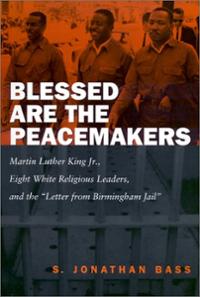
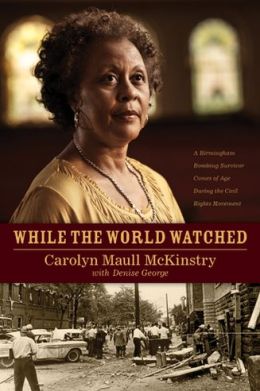
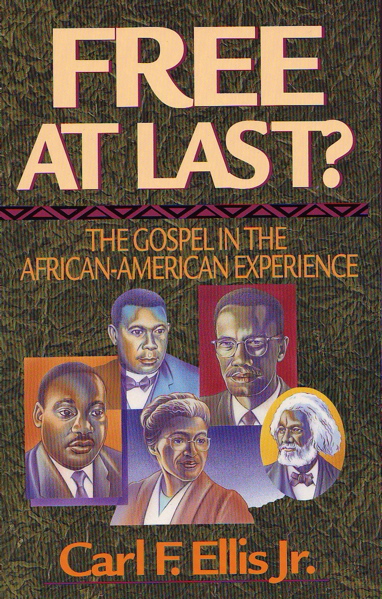
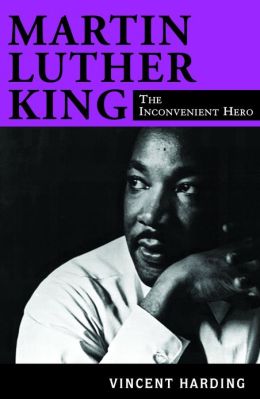
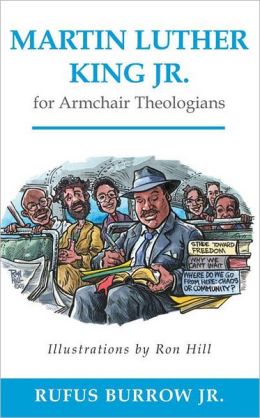
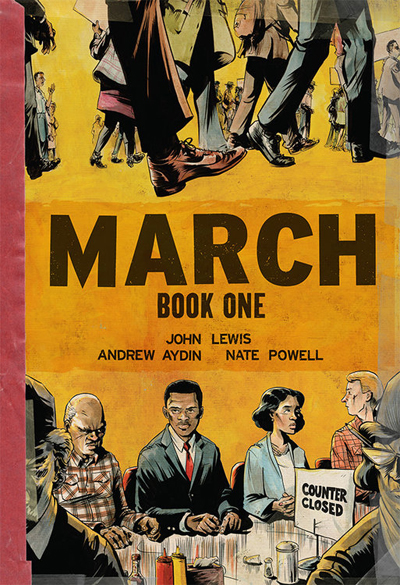
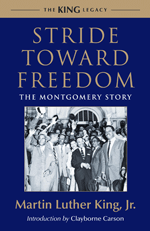
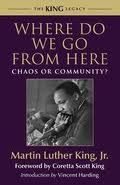
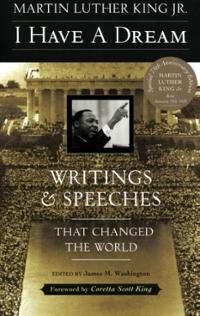 Have a Dream: Writings and Speeches That Changed the World Martin Luther King, Jr. edited by James M. Washington with a foreword by Coretta Scott king (HarperOne) $14.95 There are several compilations of King’s speeches out there and we recommend this because it covers all the major speeches, some good examples of lesser known ones, and is a fine size and a good price. From the famed keynote address at the March on Washington and “Letter From a Birmingham Jail” and the “Eulogy for the Martyred Children (1963) to the essay “Pilgrimage to Nonviolence”, the Nobel Prize acceptance speech, his piece about “Black Power” and sermons such as “The Drum Major Instinct”and Our God Is Marching On!” to his last sermon, “I See the Promised Land” preached the day before his murder, his collection is a thrilling, passionate, eloquent and timely anthology of speeches that we should continue to hear, continue to take to heart. A thicker, bigger volume, which includes chapters from his books, interviews, writings and sermons and is much more comprehensive is Testament of Hope: The Essential Writes and Speeches of Martin Luther King, Jr (HarperOne; $24.99.) It is also expertly edited by James Washington; considering it is over 725 pages, is a great value and a very useful resource.
Have a Dream: Writings and Speeches That Changed the World Martin Luther King, Jr. edited by James M. Washington with a foreword by Coretta Scott king (HarperOne) $14.95 There are several compilations of King’s speeches out there and we recommend this because it covers all the major speeches, some good examples of lesser known ones, and is a fine size and a good price. From the famed keynote address at the March on Washington and “Letter From a Birmingham Jail” and the “Eulogy for the Martyred Children (1963) to the essay “Pilgrimage to Nonviolence”, the Nobel Prize acceptance speech, his piece about “Black Power” and sermons such as “The Drum Major Instinct”and Our God Is Marching On!” to his last sermon, “I See the Promised Land” preached the day before his murder, his collection is a thrilling, passionate, eloquent and timely anthology of speeches that we should continue to hear, continue to take to heart. A thicker, bigger volume, which includes chapters from his books, interviews, writings and sermons and is much more comprehensive is Testament of Hope: The Essential Writes and Speeches of Martin Luther King, Jr (HarperOne; $24.99.) It is also expertly edited by James Washington; considering it is over 725 pages, is a great value and a very useful resource.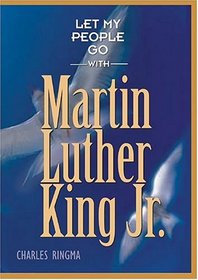 et My People Go with Martin Luther King, Jr. Charles Ringma (NavPress)$9.99 Heads up, people: read anything Charles Ringma writes. He is a Dutch-born Australian citizen, trained at the Reformed Theological College in British Columbia (and has long and lovely connections with Regent College in Vancouver, BC.) Ringma is a known for a whole-life sort of discipleship, culturally-engaged and thoughtful, but knows to equip us for our daily discipleship by helping us experience God’s presence by practicing spiritual disciplines. We might say that he is a contemplative activist; he is known for writing devotionals that bring together a deep, mystical encounter with God and a wide, mature ministry in the world. Here, as with others in this little series of pocket-sized devotionals (there is one drawing on the writings of Bonhoeffer, one on Ellul, one on Nouwen, and one on Mother Teresa.) Ringma
et My People Go with Martin Luther King, Jr. Charles Ringma (NavPress)$9.99 Heads up, people: read anything Charles Ringma writes. He is a Dutch-born Australian citizen, trained at the Reformed Theological College in British Columbia (and has long and lovely connections with Regent College in Vancouver, BC.) Ringma is a known for a whole-life sort of discipleship, culturally-engaged and thoughtful, but knows to equip us for our daily discipleship by helping us experience God’s presence by practicing spiritual disciplines. We might say that he is a contemplative activist; he is known for writing devotionals that bring together a deep, mystical encounter with God and a wide, mature ministry in the world. Here, as with others in this little series of pocket-sized devotionals (there is one drawing on the writings of Bonhoeffer, one on Ellul, one on Nouwen, and one on Mother Teresa.) Ringma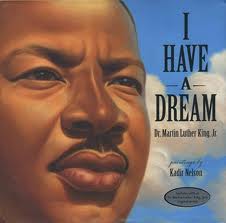
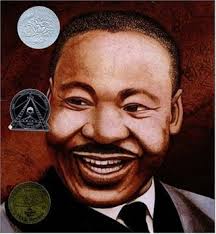

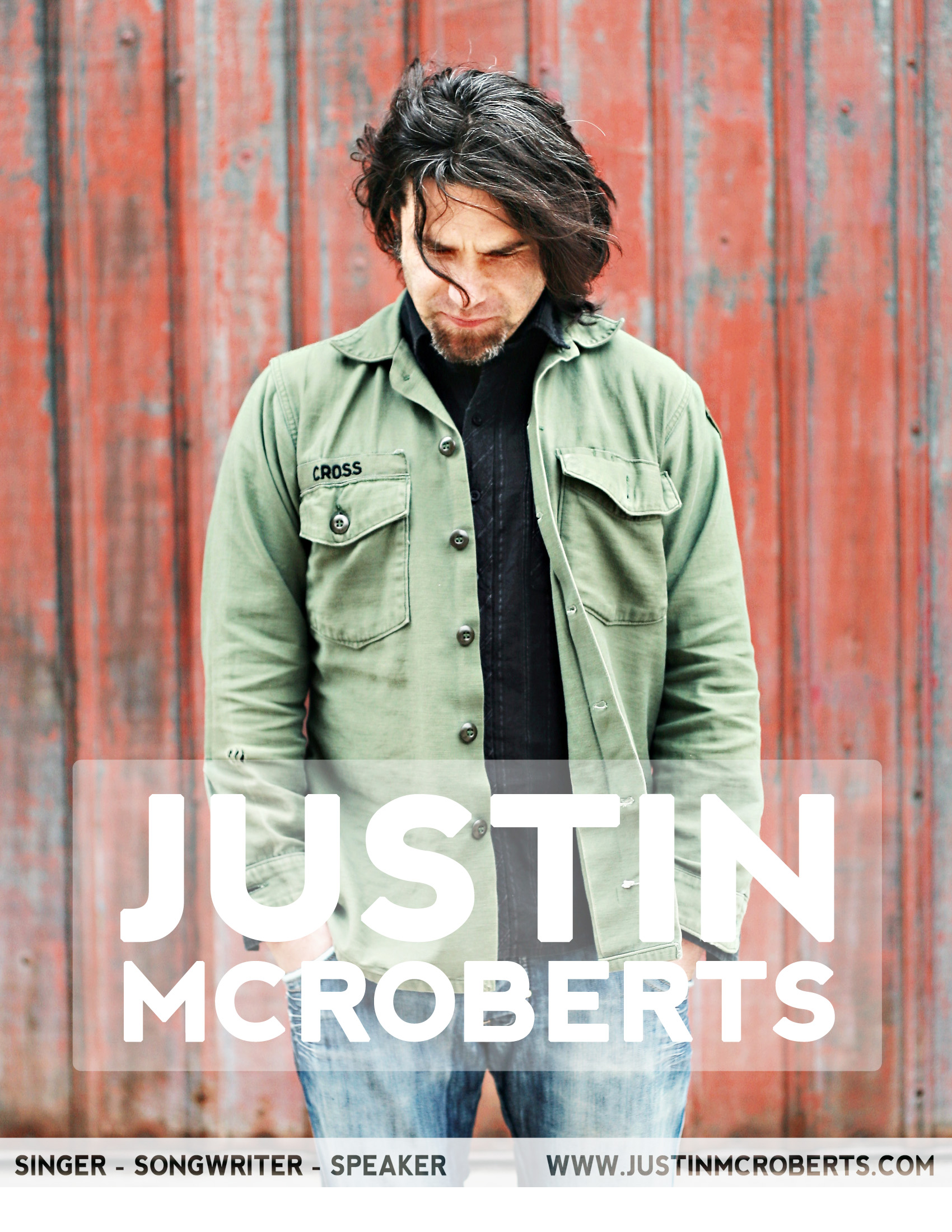

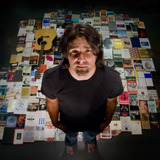
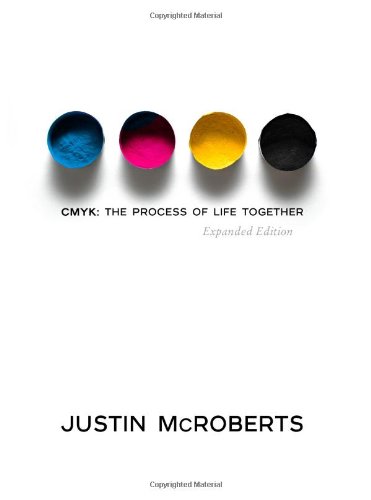
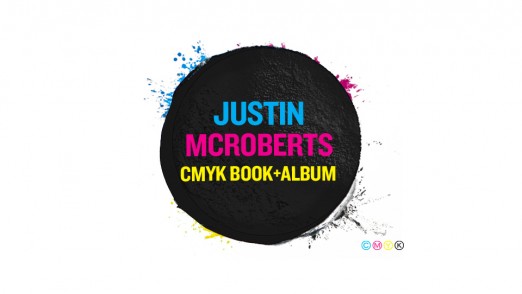
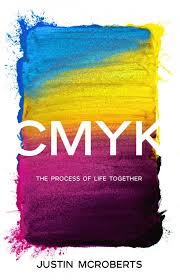
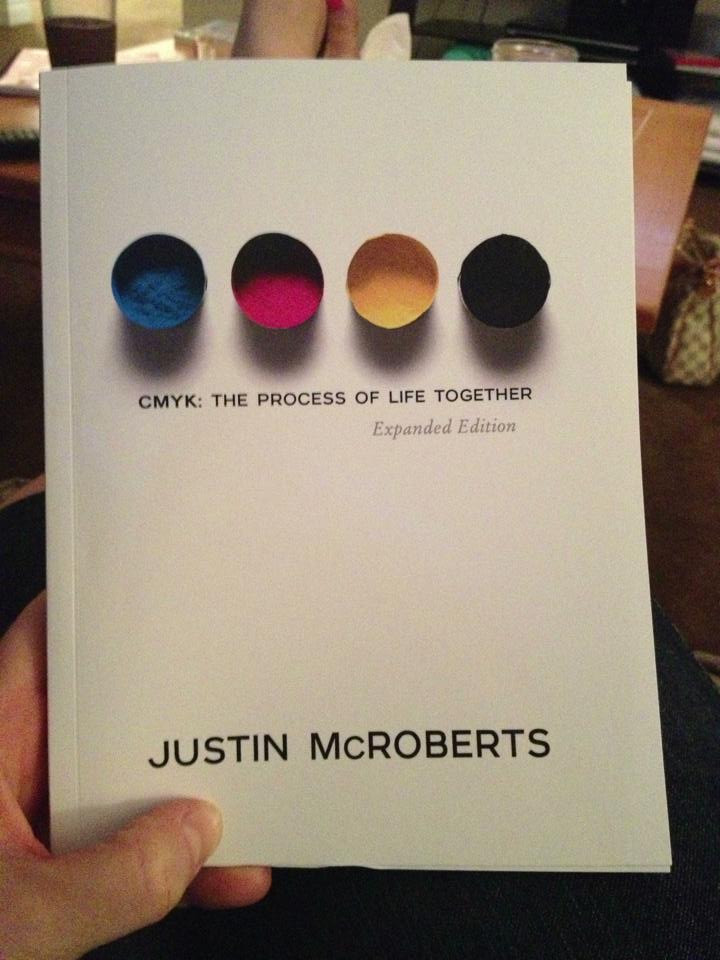












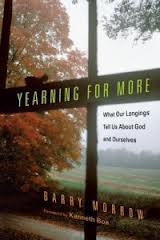
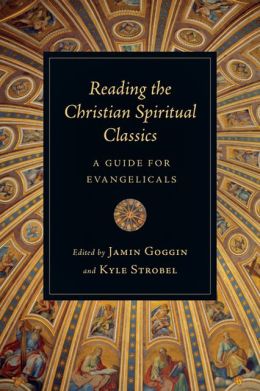
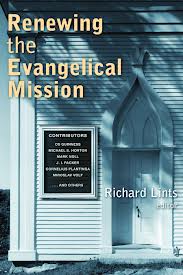
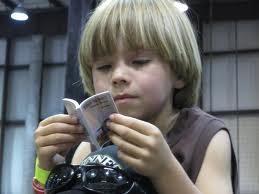
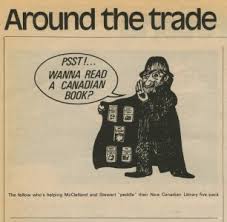
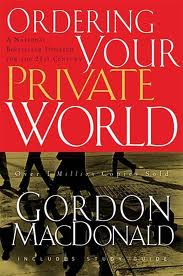
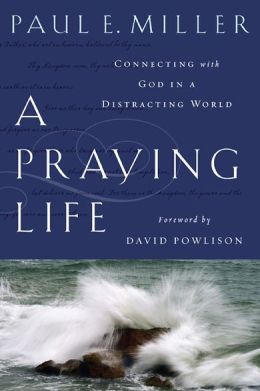
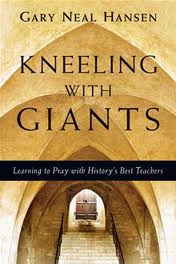
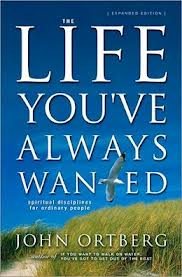
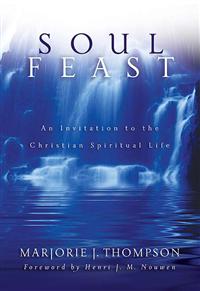
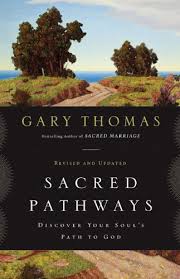
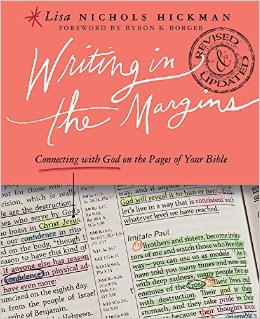
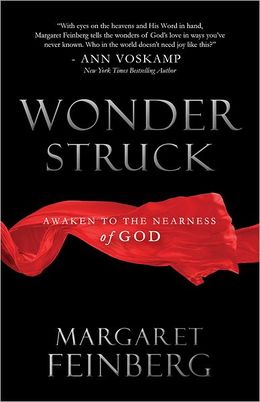
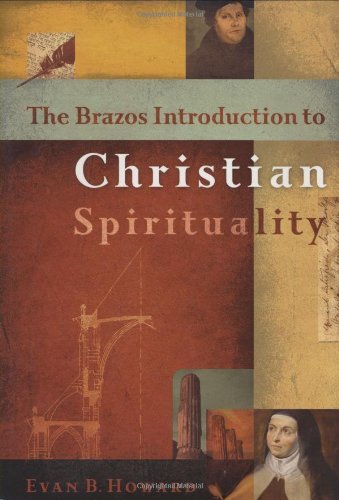
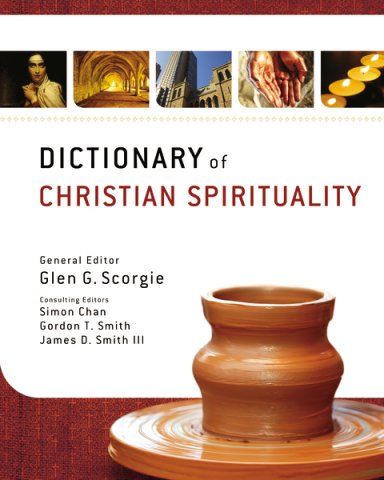
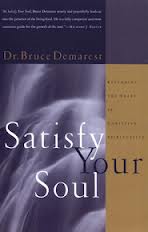
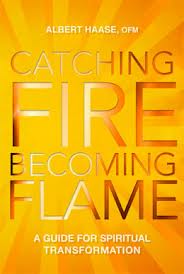
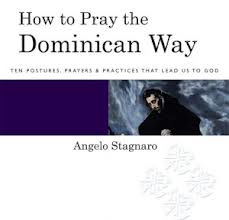
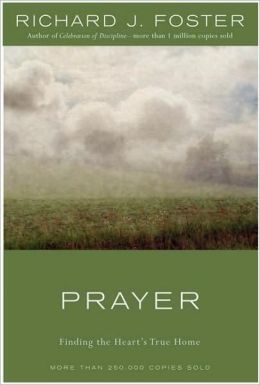 rayer: Finding the Hearts True Home Richard Foster (HarperOne) $24.95 It should almost go without saying that we are all greatly indebted to Richard Foster and his classic — and I don’t use the term loosely, it is surely in the top ten most important religious books of the 20th century, in part for the huge shift that it caused towards contemplative spirituality, sparking a renaissance of such literature — Celebration of Discipline (HarperOne; $25.99) I trust you know that we are fans of Richard and that we carry all the books he has written. His Renovare ministry is certainly worth following, and if you are drawn to that sort of thing, know we have whatever resources you may need. I list Prayer, though, as I believe it is vastly under-appreciated. There are more than 15 different sorts of praying he so eloquently describes, and some include thing you don’t often find in traditional books about prayer. He talks about lament, about sorrow, about protest. Of course praise and adoration, confession and intercession, and he is wise in all of these kinds. I highly recommend this, perhaps to read before wading into the depths of Celebration of Discipline. It isn’t simple or quick, but it is one of the most helpful, illuminating and important books I’ve ever read.
rayer: Finding the Hearts True Home Richard Foster (HarperOne) $24.95 It should almost go without saying that we are all greatly indebted to Richard Foster and his classic — and I don’t use the term loosely, it is surely in the top ten most important religious books of the 20th century, in part for the huge shift that it caused towards contemplative spirituality, sparking a renaissance of such literature — Celebration of Discipline (HarperOne; $25.99) I trust you know that we are fans of Richard and that we carry all the books he has written. His Renovare ministry is certainly worth following, and if you are drawn to that sort of thing, know we have whatever resources you may need. I list Prayer, though, as I believe it is vastly under-appreciated. There are more than 15 different sorts of praying he so eloquently describes, and some include thing you don’t often find in traditional books about prayer. He talks about lament, about sorrow, about protest. Of course praise and adoration, confession and intercession, and he is wise in all of these kinds. I highly recommend this, perhaps to read before wading into the depths of Celebration of Discipline. It isn’t simple or quick, but it is one of the most helpful, illuminating and important books I’ve ever read.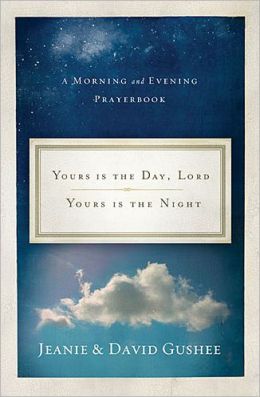
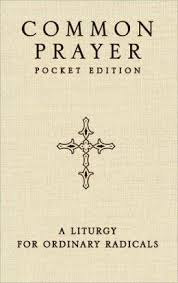
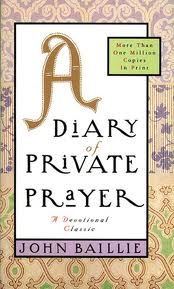
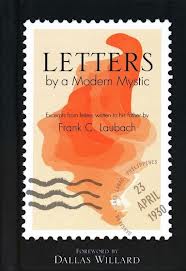
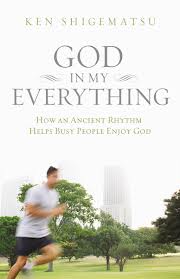
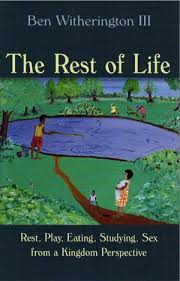
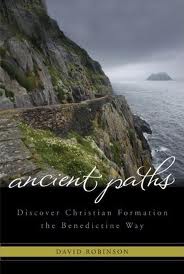 ncient Paths: Discover Christian Formation the Benedictine Way David Robenson (Paraclete) $16.95 There is a huge interest these days in monastic customs and the spirituality that emerges from those settings. Most popular, it seems, are books by and about Benedict. Benedictine spirituality affirms the daily and celebrates human work of all sorts — in the world, quite generally, but also, literally, in the Earth. High-tech culture-makers and backyard gardeners are all finding new ways to deepen their faith and spiritual experiences by hearing well the insights from this historic tradition. I myself have a bit of a love/hate relationship with the monastic way, and, for me, Benedictine faith makes most sense. Which is a long way of saying that I think this is the best book on the subject, a fine and wonderful introduction to this stream of monastic spirituality. I learned so much about the history of the order, and its good applications in the world of ordinary living. It is written by a Presbyterian pastor, too. Ha. Perfect!
ncient Paths: Discover Christian Formation the Benedictine Way David Robenson (Paraclete) $16.95 There is a huge interest these days in monastic customs and the spirituality that emerges from those settings. Most popular, it seems, are books by and about Benedict. Benedictine spirituality affirms the daily and celebrates human work of all sorts — in the world, quite generally, but also, literally, in the Earth. High-tech culture-makers and backyard gardeners are all finding new ways to deepen their faith and spiritual experiences by hearing well the insights from this historic tradition. I myself have a bit of a love/hate relationship with the monastic way, and, for me, Benedictine faith makes most sense. Which is a long way of saying that I think this is the best book on the subject, a fine and wonderful introduction to this stream of monastic spirituality. I learned so much about the history of the order, and its good applications in the world of ordinary living. It is written by a Presbyterian pastor, too. Ha. Perfect!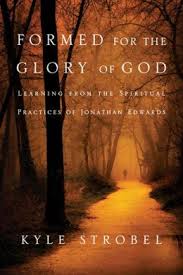
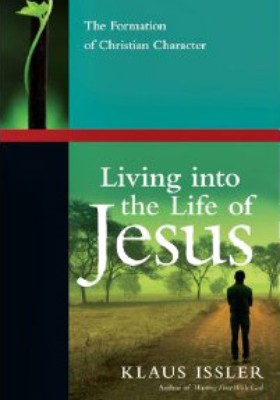
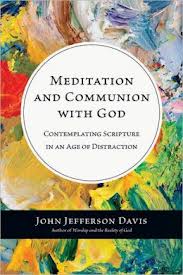
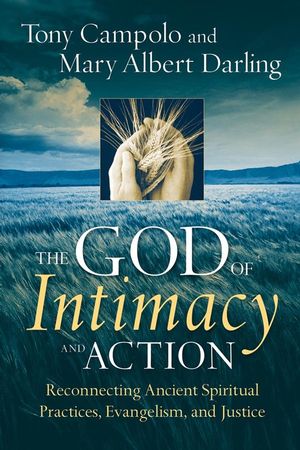
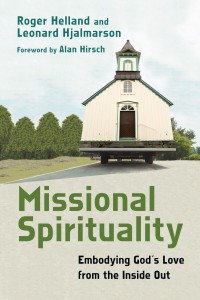
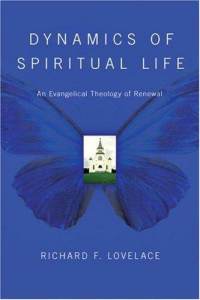
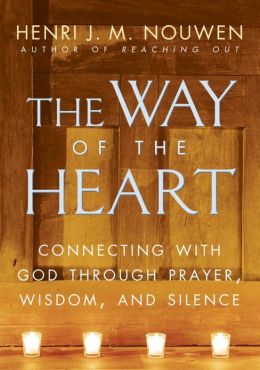 You know we sell books at a lot of mainline denominational events. I have noted before with great gladness that I’ve noticed in my lifetime a more vibrant faith and robust spirituality within our mainline churches than ever before. I think maybe 25 years ago or so reading about and experiencing contemplative spirituality became a major feature of nearly every mainline denominational clergy gathering of which I know. Liberal or conservative, authors such as Richard Foster and — most obviously, Henri Nouwen — paved the way for new layers of talking about faith. As one who has dabbled in this contemplative literature, starting (perhaps foolishly) with Thomas Merton, you surely know we think this is a good, good thing.
You know we sell books at a lot of mainline denominational events. I have noted before with great gladness that I’ve noticed in my lifetime a more vibrant faith and robust spirituality within our mainline churches than ever before. I think maybe 25 years ago or so reading about and experiencing contemplative spirituality became a major feature of nearly every mainline denominational clergy gathering of which I know. Liberal or conservative, authors such as Richard Foster and — most obviously, Henri Nouwen — paved the way for new layers of talking about faith. As one who has dabbled in this contemplative literature, starting (perhaps foolishly) with Thomas Merton, you surely know we think this is a good, good thing.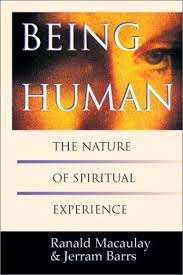 sometimes passes for spirituality. It isn’t even the time or place (although I am tempted) to examine the inherent dualisms that undergird much medieval and monastic spirituality, and those modern writers standing in that legacy. See the book Being Human: The Nature of Spiritual Experience by Ronald Macaulay & Jarram Barrs (IVP; $20.00) for a good start to that conversation. Why, even
sometimes passes for spirituality. It isn’t even the time or place (although I am tempted) to examine the inherent dualisms that undergird much medieval and monastic spirituality, and those modern writers standing in that legacy. See the book Being Human: The Nature of Spiritual Experience by Ronald Macaulay & Jarram Barrs (IVP; $20.00) for a good start to that conversation. Why, even 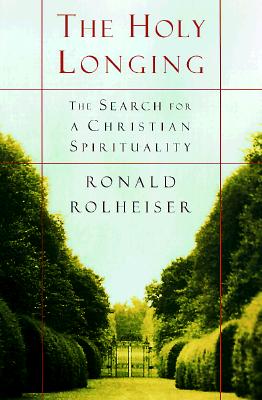 Rohr’s work is very, very helpful. And Parker Palmer — oh my. Excellent, in his gentle Quaker kind of way.
Rohr’s work is very, very helpful. And Parker Palmer — oh my. Excellent, in his gentle Quaker kind of way.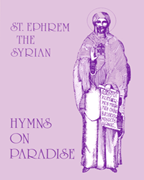 also in a creation weighted with glory.
also in a creation weighted with glory.